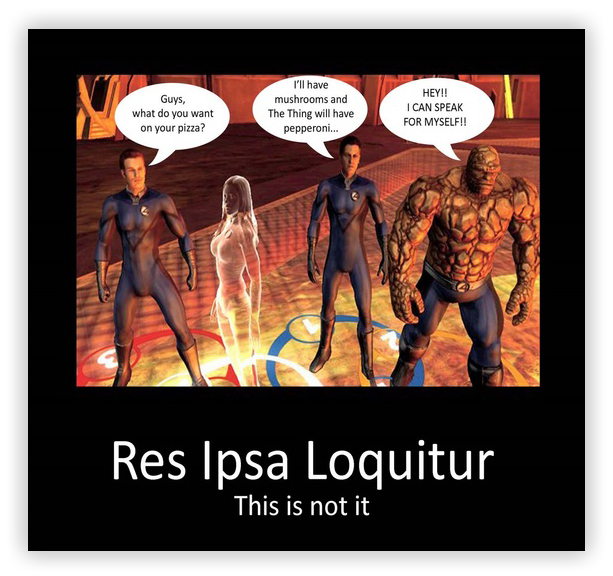We post news and comment on federal criminal justice issues, focused primarily on trial and post-conviction matters, legislative initiatives, and sentencing issues.

SOME THINGS PROVE THEMSELVES
 There’s a doctrine we all had to learn in first-year law school torts class known as “res ipsa loquitur.” That’s Latin (which the law uses a lot because when things are obscure, you can charge clients more when you have to explain them), and translates as “the thing speaks for itself.”
There’s a doctrine we all had to learn in first-year law school torts class known as “res ipsa loquitur.” That’s Latin (which the law uses a lot because when things are obscure, you can charge clients more when you have to explain them), and translates as “the thing speaks for itself.”
In last June’s Rehaif v. United States decision, the Supreme Court explained the elements that the government has to prove for a felon-in-possession conviction under 18 USC § 922(g)(1), elements which everyone had been getting wrong for years. Samir Benamor was on direct appeal of his felon-in-possession conviction when he raised the Rehaif argument, maintaining that the government had not proven that he knew he was a felon prohibited from possessing firearms.
Because Sammy had not raised the issue in the trial court, the 9th Circuit ruled he had to show plain error under Federal Rule of Criminal Procedure 52(b). I seriously doubt the Circuit was right about applying Rule 52(b), but it did, and it concluded that Sam was out of luck.
There was no doubt that the district court plainly erred by not instructing the jury that it had to find that Sammy knew he was a felon ineligible to possess a firearm. But the “plain error” standard also requires proof that but for the error, the outcome of the proceeding would have been different. One of Sammy’s priors was for being a felon in possession of a gun. The Court sort of thought that that conviction spoke for itself.
 The 9th Circuit said, “At a minimum, the prior conviction for being a felon in possession of a firearm proved beyond a reasonable doubt that Defendant had the knowledge required by Rehaif and that any error in not instructing the jury to make such a finding did not affect Defendant’s substantial rights or the fairness, integrity, or public reputation of the trial.”
The 9th Circuit said, “At a minimum, the prior conviction for being a felon in possession of a firearm proved beyond a reasonable doubt that Defendant had the knowledge required by Rehaif and that any error in not instructing the jury to make such a finding did not affect Defendant’s substantial rights or the fairness, integrity, or public reputation of the trial.”
Yeah, you’d think that having been convicted of being a felon in possession of a gun once before would have alerted Sammy that he was a convicted felon prohibited from having a gun. As the law might say, that “res” probably “ipsa loquiturs.”
United States v. Benamor, 2019 U.S. App. LEXIS 26793 (9th Cir. Sept. 5, 2019)
– Thomas L. Root

